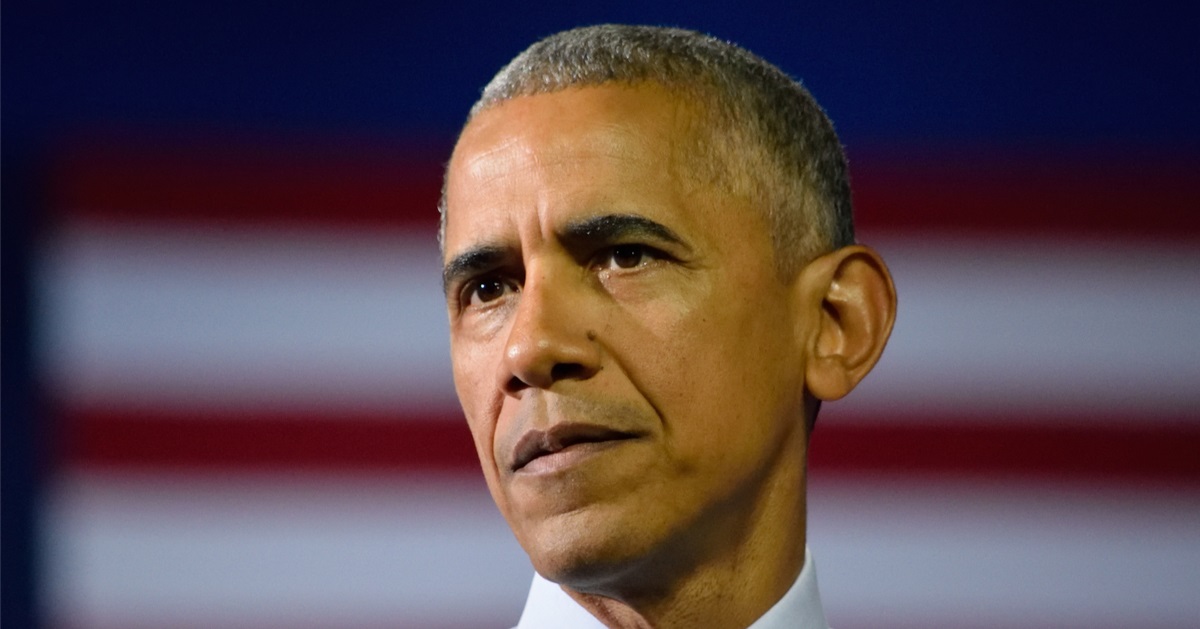Syria's regime failure reminds Americans of Obama's failure
Bashar al-Assad's regime has collapsed. Syria's rebels, who are diverse in terms of tribe, ethnicity, and religion, are now in control, as he has fled Damascus for Moscow.
The remaining archives will reveal the apparatus of Syria's system of mass murder, and torture chambers such as those at Mezzeh and Sednaya are being opened, and America is reminded of what the 44th president of the United States did to hamper the end of the regime.
The rapidity of this victory demonstrates that the West could have defeated Assad's regime, which has always been artificial, a decade ago if it had acted decisively, as The Washington Examiner reported.
The war has resulted in the deaths of over 600,000 individuals, the displacement of millions, and the deaths of thousands of individuals who attempted to flee. The war also led to the emergence of Isis, which dealt a grievous blow to global security.
Responsibility for the Deaths
Although Assad's regime is directly responsible for these catastrophes, they also serve as a reminder of the Western powers' failure to act when it was most critical, particularly former president Barack Obama.
Sarin gas was employed by Assad's forces in Ghouta in 2013, resulting in the deaths of over 1,000 civilians. Obama had declared that the use of chemical weapons was a "red line," and he had promised severe repercussions if it were crossed.
However, the response was a false diplomatic agreement that was conducted by Russia when the opportunity arose. As a result of this agreement, the regime was able to continue its campaign of terror, as unreliable inspections of Assad's chemical stockpiles were conducted.
The failure to take action undermined US credibility, strengthened Assad, and prompted Russia and Iran to intervene.
Continuous airstrikes
In 2015, Russia's military intervened in the Syrian civil war, employing unremitting air strikes to target civilian areas, particularly hospitals. Meanwhile, Iran mobilized militias, including Hezbollah, to massacre opposition forces on the ground.
Assad's survival was extended by these interventions, which were fueled by the West's perceived vulnerability. However, as 2024 concludes, Russia is enmeshed in Ukraine, and Israeli actions have undermined Iran's militias.
The Assad regime's rapid collapse underscores what was always apparent: it was inherently weak and could have been overthrown a decade earlier.
The Syrian National Coalition (SNC), a multi-ethnic opposition umbrella group, was prepared to assume power at that time. It envisioned a pluralistic Syria, consisting of civil society leaders and defectors from the Syrian Arab Army.
What Happened Since
In Aleppo, the Damascus suburbs, and Kurdish-majority regions, Assad's forces were encountering formidable opposition. The rise of Isis had not yet occurred, and Russia's intervention was still years away. The SNC, with the assistance of the Free Syrian Army (FSA), was a viable alternative to Assad's authority.
The trajectory of the conflict could have been altered by targeted strikes on Assad's chemical and aerial capabilities in 2013.
These actions, in addition to the transfer of Syria's United Nations seat to the SNC, the arming of vetted FSA factions, and the enforcement of a no-fly zone, were feasible and could have prevented the loss of hundreds of thousands of lives.
But Obama's hesitation enabled Assad to consolidate his forces, destroy opposition strongholds with chemical weapons, and establish a precedent for atrocities that would characterize the conflict.
The US Involvement
The United States' involvement was further delayed until the complete emergence of Isis in 2014, at which point the situation had deteriorated beyond recognition due to the failure to act in 2013. The same year, Assad's recourse to chemical weapons was a clear indication of his desperation, which was characterized by both barbarism and vulnerability.
However, the regime was emboldened by Obama's failure to respond decisively, which allowed Russia and Iran to establish their dominance. By the time strikes on Assad's chemical arsenal occurred in 2017 and 2018, it was too late to prevent the immense human and geopolitical toll of the conflict.
The Obama administration's failure to enforce its red line in 2013 not only extended the war but also eroded US credibility.
Syria's catastrophe serves as a testament to the consequences of a lack of strategic foresight and moral courage in international leadership.


